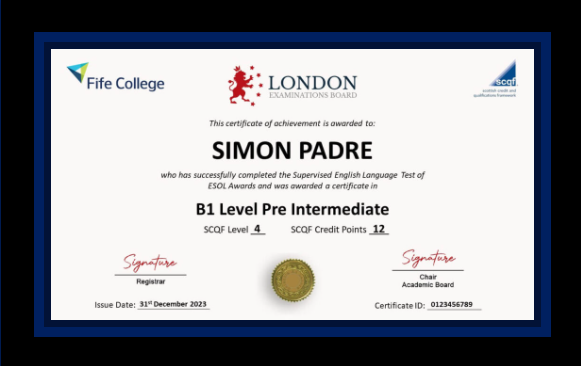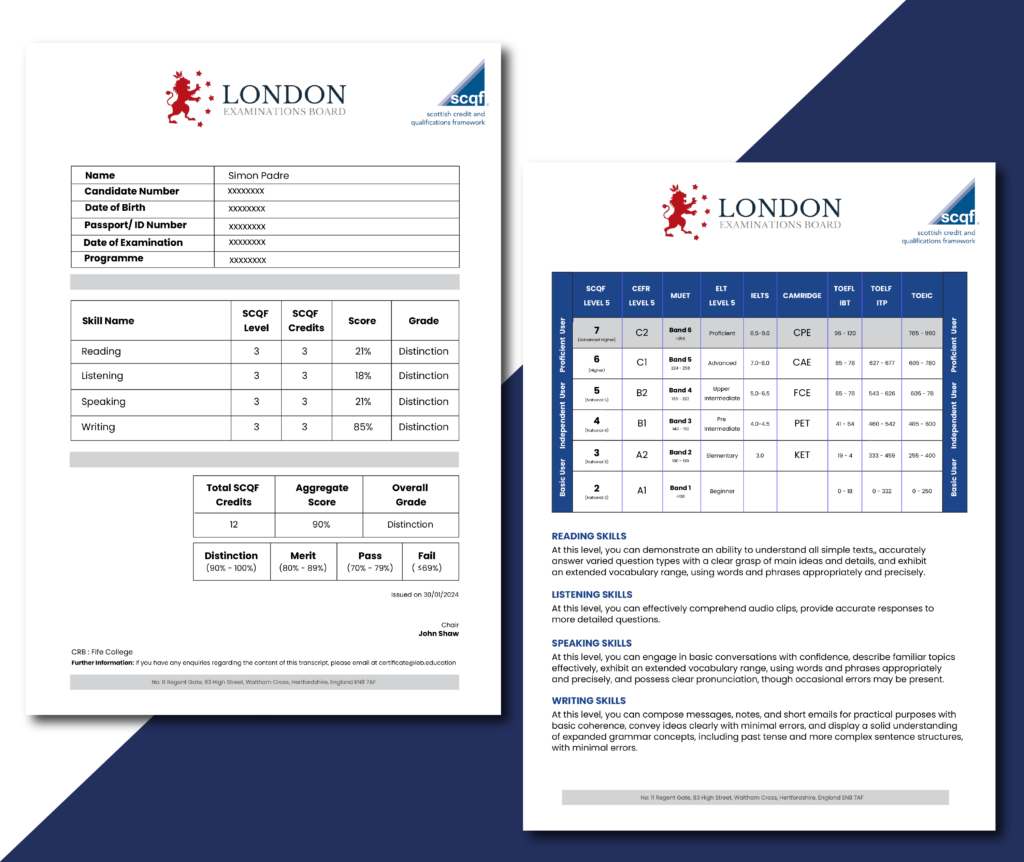The Scoƫish Credit and Qualifications Framework (SCQF) serves as a comprehensive guide for language learners and educators, establishing a standard for assessing language proficiency.Language proficiency is divided into three levels:basic (Levels 2-3), intermediate (Levels 4-5), and advanced (Levels 6-7). The framework evaluates various language skills, encompassing reading and listening comprehension, writing, and speaking. The SCQF provides a globally recognized foundation for comparing proficiency across languages.
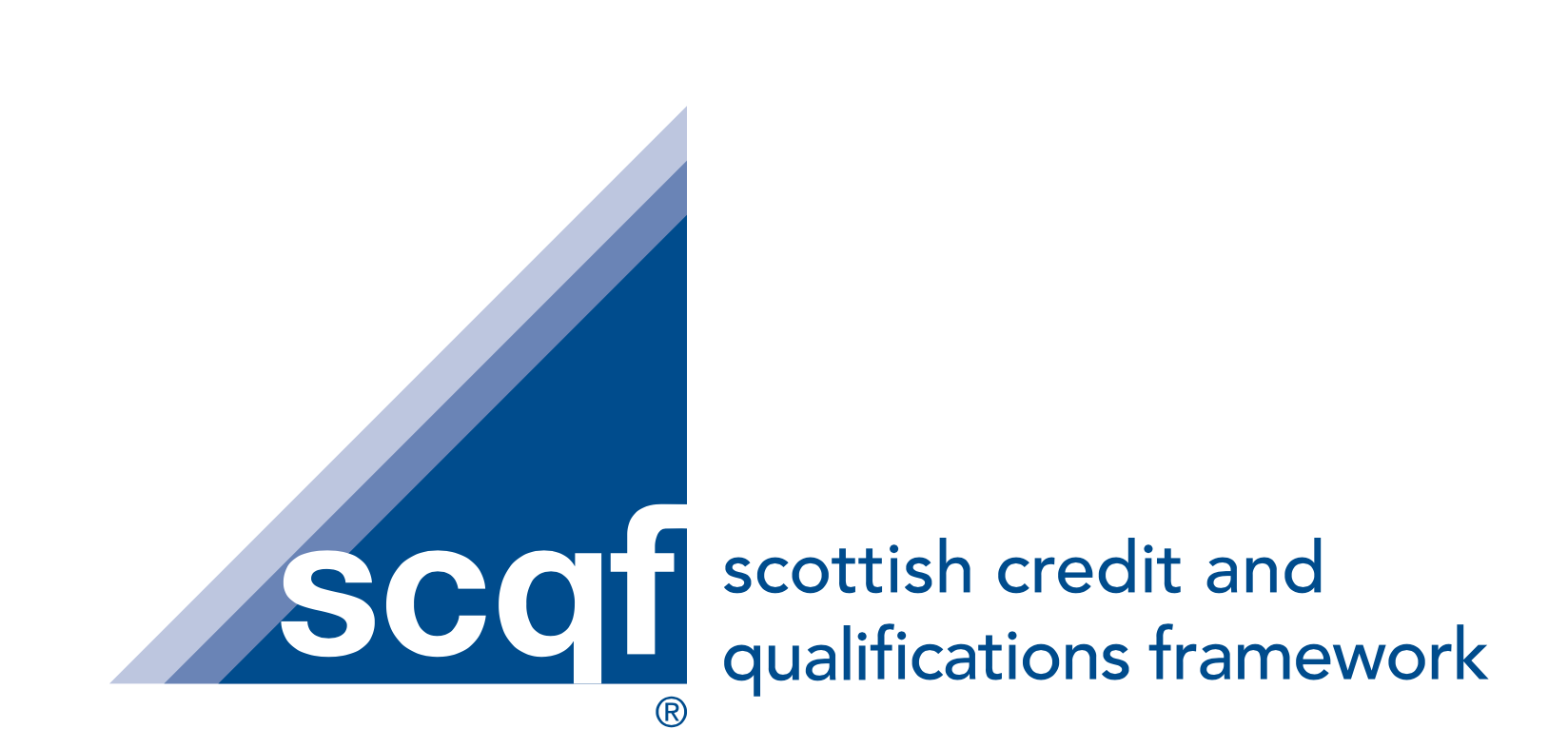
LEB Level Descriptor
English Level

A1 – Beginner
At the A1 level, learners will understand and use familiar everyday expressions and very basic phrases aimed at the satisfaction of simple needs. They learn to introduce themselves and others, ask and answer simple questions about personal details, and interact in a simple way provided the other person speaks slowly and clearly
AT THIS LEVEL, INDIVIDUALS CAN:
- Understand simple phrases and expressions used in familiar situations
- Use simple phrases and sentences to describe themselves, their facility, their immediate environment and other basic information
- Understand short, simple texts containing familiar vocabulary and basic information
- Write short, simple texts like postcards and notes about familiar topics

A2 – Elementary
At the A2 level, learners will develop basic language skills that enable them to engage in more varied and interactive communication. This level represents a step beyond the very basics, allowing learners to handle a wider range of everyday situations with increased confidence.
AT THIS LEVEL, INDIVIDUALS CAN:
- Understand simple and routine interactions and instructions
- Participate in basic social interactions, including expressing simple opinions, preferences, and feelings
- Extract relevant information from simple written materials
- Produce well-organise texts on familiar topics
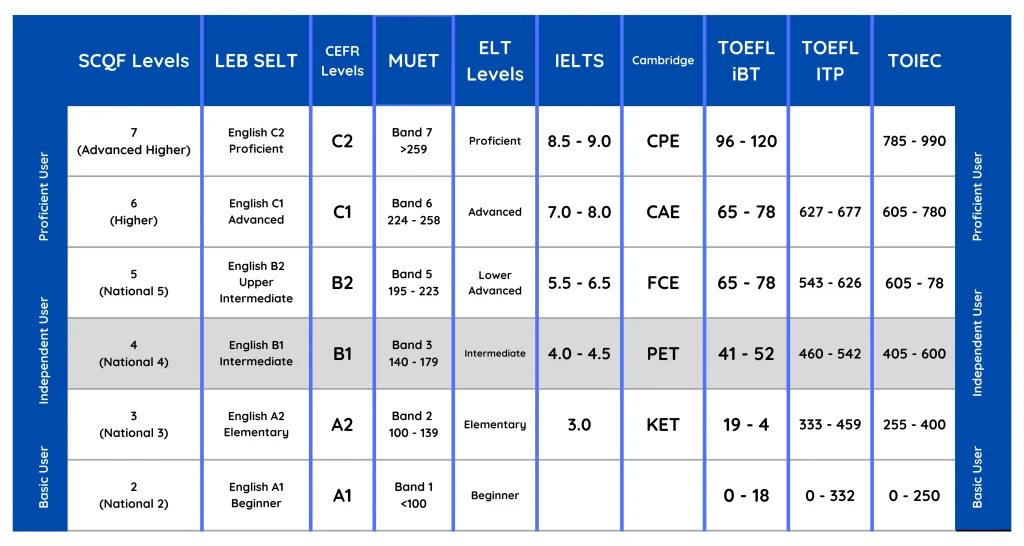
B1 – Intermediate
At the B1 level, learners will have reached an intermediate stage, signifying a transition from pre-intermediate skills. This level represents a significant step forward from the previous stages, as learners become capable of more varied communication and engagement.
AT THIS LEVEL, INDIVIDUALS CAN:
- Follow and understand the main points and details of conversations and discussions related to familiar topics
- Engage in straighforward conversations and discussions
- Understand longer texts that use straighforward language
- Produce clear and well-organised texts on familiar subjects
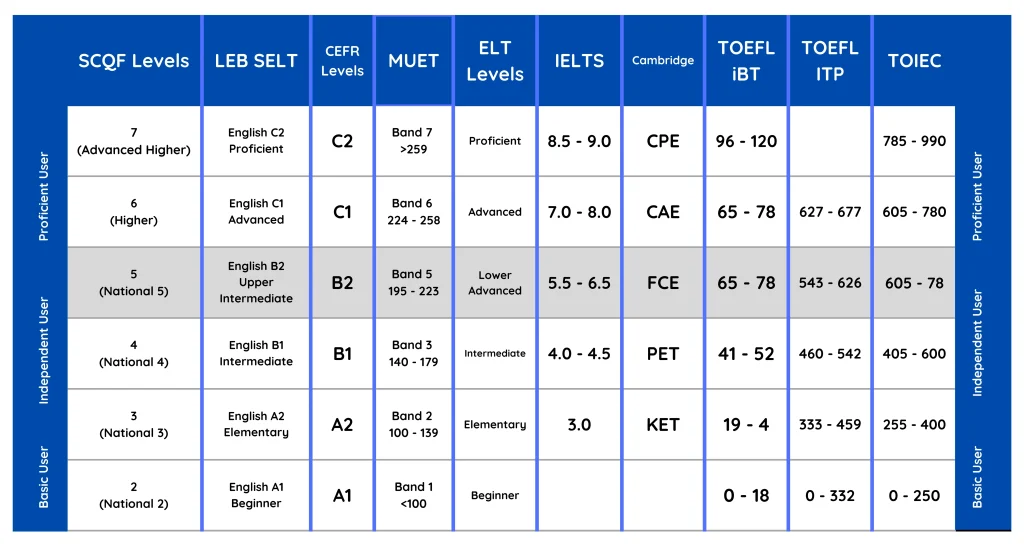
B2 – Upper Intermediate
At the B2 level, learners have advanced beyond the intermediate stage and have acquired a solid command of the language at the basic level that allows them to engage in more detailed communication. This level represents a substantial leap in language skills, enabling learners to navigate a wide range of social, academic, and professional situations with confidence.
AT THIS LEVEL, INDIVIDUALS CAN:
- Understand extended conversations and discussions about abstract or complex topics
- Participate in detailed conversations and discussions, clearly expressing opinions and providing supporting evidence
- Understand longer and more detailed texts, including articles, essays, and reports
- Produce well-structured and coherent texts on topics about everyday context and familiar situations, presenting arguments and viewpoints effectively

C1 – Advanced
At the C1 level, learners will attain an advanced level of language mastery that enables them to engage in complex, accurate, and highly effective communication across a wide range of contexts. This level represents a significant achievement, as learners demonstrate a high level of fluency, accuracy, and cultural awareness.
AT THIS LEVEL, INDIVIDUALS CAN:
- Understand a wide variety of complex spoken content
- Engage in extended and complex conversations, articulating viewpoints, and presenting arguments with precision
- Understand advanced written materials
- Produce well-structured and coherent text with a high degree of complexity

C2 – Proficient
At the C2 level, learners will achieve the highest level of language mastery, demonstrating an exceptional command of the language that allows them to engage in sophisticated, nuanced, and culturally sensitive communication. This level represents a pinnacle of language achievement, where learners can operate with near-native proficiency in various contexts.
AT THIS LEVEL, INDIVIDUALS CAN:
- Understand a wide array of spoken content
- Communicate effortlessly and effectively in all situations
- Comprehend complex and demanding texts
- Produce advanced, well-structured texts
A1 – Beginner
At the A1 level, learners will understand and use familiar everyday expressions and very basic phrases aimed at the satisfaction of simple needs. They learn to introduce themselves and others, ask and answer simple questions about personal details, and interact in a simple way provided the other person speaks slowly and clearly
AT THIS LEVEL, INDIVIDUALS CAN:
- Understand simple phrases and expressions used in familiar situations
- Use simple phrases and sentences to describe themselves, their facility, their immediate environment and other basic information
- Understand short, simple texts containing familiar vocabulary and basic information
- Write short, simple texts like postcards and notes about familiar topics
Certificate and Transcript of Record
LEB transcends conventional language assessments for non-native speakers by providing globally recognized certificates. These certificates not only facilitate access to education and career advancement but also furnish a personalized score description. This detailed feedback offers an extensive analysis of the test taker’s performance, spotlighting strengths and areas for enhancement. LEB is dedicated to nurturing ongoing improvement, ensuring that each assessment contributes to honing English language proficiency and unlocking international opportunities.
Opt for LEB—where recognition transcends boundaries!
